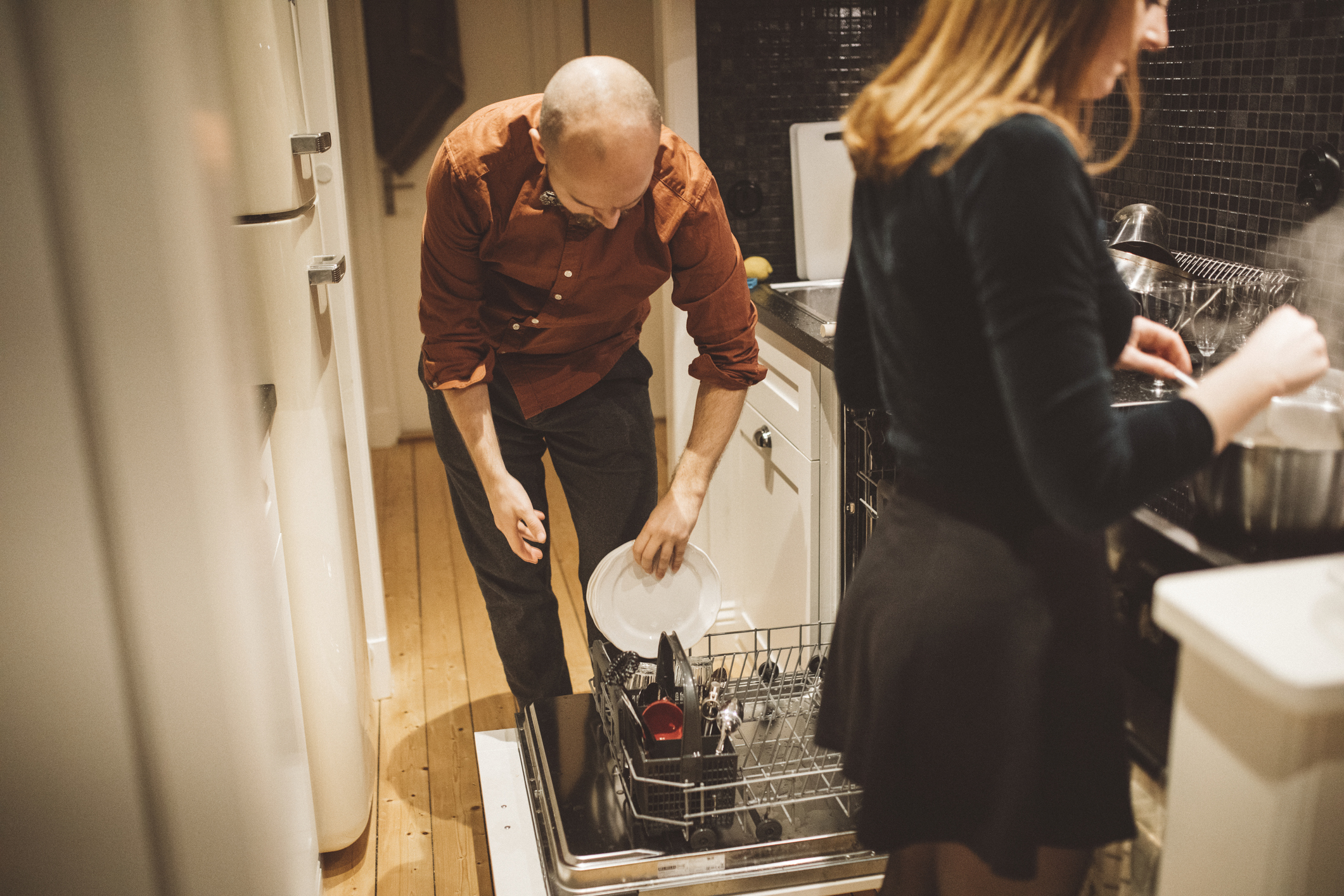Is electricity cheaper at night and what time counts as peak and off peak?
We look at whether electricity is actually cheaper at night, the kinds of tariffs that will give you cheaper electricity at night, and what classes as peak and off-peak use


Sarah Handley
Recent updates
This article has been updated to reflect recent changes in the energy market, including the drop in the energy price cap and the renewal of the Demand Flexibility Service for winter 2023. We have added more expert insight, and additional information around whether families can get a time of use tariff for gas
As the nights get darker and winter approaches, families might be wondering if electricity is cheaper at night and whether using more electricity at certain times of day could help lower energy bills. Most energy tariffs are flat rate meaning families will pay the same unit cost for electricity regardless of the time of day they use it. But a handful of tariffs offer cheaper electricity at night.
The past couple of years have seen families worry about how much their energy bills will cost since prices started to increase at the start of 2022. However, energy prices are now starting to fall and the energy price cap dropped in October 2022. However it is still significantly more expensive than the approximate £1,200 level before the energy crisis hit.
Alice Haine, personal finance analyst at Bestinvest, said: “As the colder temperatures draw in, it is vital for households to understand how their energy bills are calculated and what they can do to reduce the size of that bill.
“Most households are currently on a standard variable tariff, where prices are determined by the EPC [energy price cap], but now might be the time to consider other options that might be more cost effective."
Is electricity cheaper at night?
Electricity is cheaper at night for some families, but for others, it will be no cheaper than electricity used at other times of the day. It all depends on the type of electricity tariff you have.
The majority of energy tariffs charge a flat rate for electricity, regardless of what time of day you use it. So, if you're putting your washing machine on at night to save a few pennies, we're sorry to say it might not be making much of a difference.
However, if you have a time-of-use tariff, such as Economy 7 or Economy 10, you could benefit from cheaper rates at night. Some energy suppliers also offer electric vehicle (EV) tariffs with cheaper rates during off-peak hours.
GoodtoKnow Newsletter
Parenting advice, hot topics, best buys and family finance tips delivered straight to your inbox.
What are Economy 7 and Economy 10 tariffs?
Economy 7 and Economy 10 tariffs for electricity offer cheaper electricity at certain times of day – the number relates to the number of cheaper hours each day. If you have one of these tariffs, you will have a special sort of electricity meter.
Through using these meters, energy providers charge less for using electricity at certain times of day. These off-peak hours tend to be quieter periods when power demand is at its lowest, for example between 10pm and 8am.
However, last winter some energy suppliers signed up to something called the Demand Flexibility Service that gave you money off your bills if you avoid using electricity at peak times, even if you weren't on a time-of-use tariff.

What is the Demand Flexibility Service?
Last winter saw the National Grid introduce the Demand Flexibility Service. Providing your energy supplier signed up, this meant you could get money off your bills if you avoided using electricity at peak times, even if you were on a flat-rate tariff (where the price you pay per unit of electricity remains unchanged throughout the day).
National Grid has announced that the scheme will return this winter. Jake Rigg, corporate affairs director at National Grid ESO, said: “The ESO will be reintroducing the Demand Flexibility Service for this winter and is keen for more consumers, both large and small, to get involved. We want to work with industry to build on the past success of this new and innovative service.
“Across last winter the Demand Flexibility Service successfully demonstrated the interest of consumers and businesses in playing a more active role in balancing our electricity needs and to be rewarded with savings for their action in the process.”
Important terminology explained
- Energy price cap - This is not the maximum amount you will pay for your energy bills, it's actually the average maximum price you will pay per unit of energy that you use, but is usually stated as an annual average price a typical household would pay. It's set by the energy regulator Ofgem and is reviewed every three months.
- Energy Price Guarantee - when the energy price cap got so high during the energy crisis the government introduced a temporary cap, the Energy Price Guarantee, that meant that typical annual energy bills would be no more than £2,500. This scheme ended at the end June 2023.
- Energy tariff - this is set by your supplier and used to calculate your energy bill. Most people will be on their supplier's standard variable, or default, tariff, which means the price you pay is governed by the energy price cap. Some people might find they are being offered fixed-rate tariffs (where the price you pay per unit of energy won't change for the duration of the tariff - normally 12 months)
When is off peak for electricity?
With Economy 7, off-peak is usually between 12am and 7am. But what counts as peak and off-peak can vary depending on your provider, where you live, and the time of year. Make sure you check your bill or speak to your provider to find out what is classed as off-peak for your specific circumstances, as using energy at peak times could prove very expensive.
Economy 10 tariffs tend to be more complicated as the off-peak hours are grouped throughout the day and night.
Here's an example of what Economy 10 off-peak times could be:
- Three off-peak hours in the afternoon (e.g. 1pm -4pm)
- Two off-peak hours in the evening (e.g. 8pm – 10pm)
- Five off-peak hours overnight (e.g. 12am – 5am)
To use an Economy 7 or Economy 10 tariff you’ll need a two-rate electricity meter. These meters are capable of recording how much electricity you use at different times of the day and will allow your supplier to charge you a cheaper rate in off-peak periods.
Potential issues with off-peak tariffs
It might sound great but there are several potential issues with Economy 7 or Economy 10 tariffs. Using this type of tariff might cost you more overall as the unit costs during peak times can be very high. You’ll also need to be very disciplined about using devices such as dishwashers, washing machines and tumble dryers at night.
Les Roberts, content manager at business energy comparison site Bionic adds: “The cheaper rate hours won't usually change when the clocks go back later this month so you might have to adjust the time you plan to use your appliances to coincide with the off peak hours outlined by your provider.”
If you are on an time-of-use tariff and finding it expensive, it's worth looking on a price comparison site like Go.Compare to see if there are any cheaper tariffs available to you.
Is it safe to use appliances at night?
Safety experts generally warn against using electrical appliances at night. If a fire breaks out while everyone is asleep, there is likely to be a delay in raising the alarm and getting your family or housemates to safety.
The London Fire Brigade advises anyone using appliances at night to make sure their home is fitted with working smoke alarms which are tested regularly.
Whatever time of day you use appliances, don’t overload your plug sockets as this can lead to overheating and increased fire risk. Always register new white goods with the manufacturer so if there’s a dangerous fault that could cause a fire, you’ll be notified.
If you aren't on a tariff where you can benefit from cheaper energy at night, it's worth knowing how to save energy in your home to see if you can make savings by reducing your usage.
When is peak time for electricity?
Peak time for electricity demand or use is from 4pm to 7pm. This tends to be when people get home from work, cook their dinner and do their washing. In the winter, households will also put lights and heating on around this time.
If you are not on a time-of-use tariff, then you won't pay any extra to use gas or electricity at this time. But over the winter months, you might find your supplier encourages you to avoid using too much energy at this time to help balance supplies with demand. In the winter of 2022, supplies ran so low that there were talks of rolling blackouts, but luckily these were avoided.
Some energy suppliers offer special EV tariffs for people who own electric vehicles. These tariffs offer cheaper electricity overnight – the idea is that this is when you would charge your car.
EV tariffs on the market at the moment include Intelligent Octopus Go, Charge Anytime from Ovo, Next Drive from E.on Next and Electric Driver Oct 24 from British Gas. These generally offer between four and seven off-peak hours during which you should charge your car. The exact hours vary between providers and generally start around midnight – so check before you plug your car in.
Why is it cheaper to use electricity off-peak?
The reason electricity is cheaper off-peak comes down to supply and demand. The UK’s energy supply can run more efficiently, and cheaply, if we lower energy demand during peak periods and use more in off-peak periods.
Energy firms offer time of use electricity tariffs because the cost of wholesale energy varies with the time of day due to changes in demand.
Electricity demand can sometimes outstrip supply during peak periods – i.e. during the day. Typically, gas or diesel-powered plants are fired up to meet that demand. This adds to the UK’s carbon dioxide emissions and costs both the National Grid and energy suppliers money.
Do I need to be on a particular tariff to benefit from off-peak prices?
You’ll need to be on a ‘time of use’ tariff (usually Economy 7 or Economy 10) to get cheaper electricity at night. Most people aren’t on these tariffs and so pay a flat rate for electricity. Although British Gas customers benefitting from the supplier's PeakSave scheme, will see discounts on the energy they use on a Sunday.
According to the energy regulator, Ofgem, about four million out of a total of 29 million domestic electricity customers in the UK are on E7 or E10 tariffs. You might have these electricity meters if you use storage heaters to heat your home and a hot water tank for hot water. The heaters and water heat up overnight and then you heat your home or use hot water during the day.
However, you might be able to save money by using the majority of your electricity off-peak if your supplier runs a scheme that encourages you to move your electricity use away from peak times. For example, British Gas customers can benefit from the supplier's PeakSave scheme which offers discounts on the energy they use on a Sunday.
If you are with Ovo Energy, you can sign up to Ovo Power Move which allows you to save up to £15 a month on your bill by using less energy from 4pm to 7pm from Monday to Friday.

Is an off-peak tariff a good idea?
With energy prices still high, an off-peak tariff is probably not a good idea. Most households would be better off on a standard variable tariff at the moment. E7 or E10 tariffs are usually more expensive than standard tariffs.
If you have E7/E10 and find it expensive, you can ask your supplier to change you to a single-rate meter and tariff. If you are on a more modern time of use tariff, such as offered by Green Energy or Octopus, you should compare deals with standard tariffs. You can use a price comparison website, like out sister site Go.Compare to see if you could save money by switching tariffs.
Not every household will suit a time-of-use tariff even if energy prices fall. For example, if you work from home, you’ll need to run your computer during the day.
If you are struggling with rising prices and can't pay your energy bills, you're not alone and assistance is available.
Can you get an Economy 7 meter for gas?
No, you can’t get Economy 7 (or Economy 10) for gas. Economy 7 or 10 are for electricity only.
The amount you pay per unit of gas will be the same whatever the time of day you use it. Bionic's Les Roberts adds: “You can't use a Economy 7 or 10 tariff for gas power. Because gas is mainly used for cooking, heating and hot water - all of which are mainly used throughout the day - the cost of an off-peak gas tariff would be too high for the supplier."
4 things families should know before opting for a time of use tariff
Most households don’t actively choose an Economy 7 or 10 tariff – in most cases, this type of meter will already be installed in their homes. There is rarely a good case for ditching a traditional electricity meter for Economy 7 but here’s what you should know if you were thinking of making the switch.
- Most homes with Economy 7 (or 10) are heated by storage heaters (these use electricity to warm up during the cheaper, off-peak hours and release the heat throughout the next day, as needed) and an Economy 7 hot water tank which works with an immersion heater.
- Although night-time or off-peak hours on Economy 7 can be cheap, daytime rates can be so high that you won’t save money overall. In fact, you could end up paying more.
- There can be massive differences in the day (peak) and night (off-peak) rates each supplier offers, as well as what times of day are classed as peak and off-peak. You’ll need to fully understand how your particular tariff works before signing up. Some tariffs will change the peak/off-peak hours when the clocks go backwards/forwards.
- If you've got an Economy 7 meter and think you'd be better off on a regular single-rate tariff, most energy suppliers will change your meter for free. If your provider does charge, you can switch to one that doesn't.
It's worth also finding out how much it costs to run a tumble dryer, or how much a washing machine costs to run, and how to reduce the costs, as these are some of the most energy-hungry appliances in the home.
Related video: how to save money on a holiday

Emma Lunn is a multi-award-winning journalist who specialises in personal finance and consumer issues. With more than 18 years of experience in personal finance, Emma has covered topics including all aspects of energy - from the energy price cap to prepayment meter tricks, as well as mortgages, banking, debt, budgeting, broadband, pensions and investments. Emma’s one of the most prolific freelance personal finance journalists with a back catalogue of work in newspapers such as The Guardian, The Independent, The Daily Telegraph, the Mail on Sunday and the Mirror.
- Sarah HandleyMoney Editor, GoodtoKnow
-
 How to save money: 28 family-friendly money-saving tips for mums and dads
How to save money: 28 family-friendly money-saving tips for mums and dadsUnderstanding how to save money is key to limiting the impact of rising costs as much as possible
By Sarah Handley Published
-
 14 hidden benefits of your Amazon Prime membership
14 hidden benefits of your Amazon Prime membershipWe reveal the less-obvious perks of a Prime membership that will help you get the most value out of your subscription fee
By Rachel Wait Published
-
 14 surprising ways to spend your Tesco Clubcard vouchers - from restaurants and cinema passes to mini breaks and Disney+
14 surprising ways to spend your Tesco Clubcard vouchers - from restaurants and cinema passes to mini breaks and Disney+Tesco Clubcard vouchers can help you cut the cost of everything from groceries and travel to days out and cinema tickets
By Heidi Scrimgeour Published
-
 How to get Disney+ for free and save up to £79.90 a year
How to get Disney+ for free and save up to £79.90 a yearEven though the streaming giant ended its free trial offering, there are still multiple ways you can get Disney+ for free for up to 12 months
By Sarah Handley Published
-
 Parents of teens who have just taken their GCSEs urged to check child benefit status ahead of August deadline
Parents of teens who have just taken their GCSEs urged to check child benefit status ahead of August deadlineWith a child benefit deadline looming, some parents could see their payments reduced or stopped altogether - here's why
By Sarah Handley Published
-
 Parents should hold off buying this back to school staple 'as close to their first day as possible', says retailer
Parents should hold off buying this back to school staple 'as close to their first day as possible', says retailerWith parents turning their attention to kitting their kids out for the new school year, research suggestions which items should be left until the last minute
By Sarah Handley Published
-
 7 ways to save on back to school essentials, as its revealed parents will spend £2.3 billion in 2024
7 ways to save on back to school essentials, as its revealed parents will spend £2.3 billion in 2024We share ways you can get your child all the bits and bobs they need for the new school year, without breaking the bank
By Sarah Handley Published
-
 What day is child benefit paid around the bank holiday? Everything parents need to know
What day is child benefit paid around the bank holiday? Everything parents need to knowKnowing which day child benefit is paid when it comes to the bank holiday can help families plan their budgets accordingly
By Sarah Handley Published